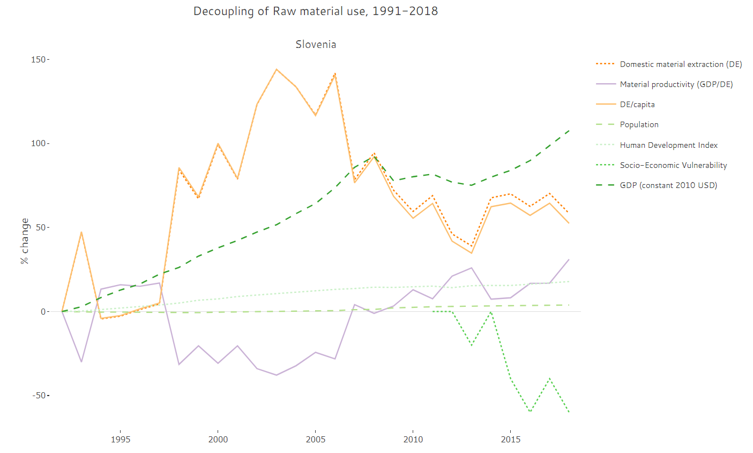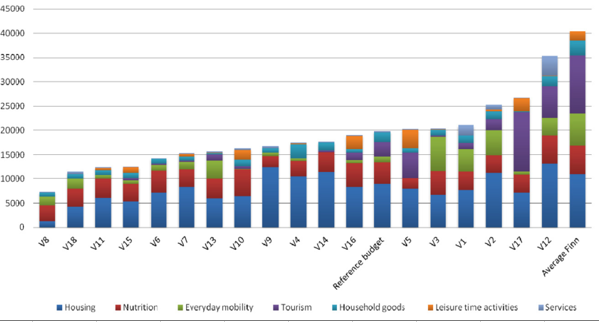[PG10] Material footprint of households
[PG10] Material footprint of households

Key message

Our society, its production and consumption systems, is based on the use of raw materials such as biomass, fossil fuels and minerals. By increasing the extraction of raw materials, the associated environmental and social impacts are approaching or already exceeding natural limits.
According to available UN data for the period 1990 to 2015, Slovenia achieved no decoupling of economic development from raw material consumption.
In 2015, only five EU countries: Germany, Austria, Slovenia, Belgium and the Netherlands, recycled at least half of their municipal waste.
In Finland, based on years of research, they have proposed a sustainable annual target of eight tonnes per person as an acceptable material household footprint.
Charts
Figure PG10-1: PG10-1 Decoupling of material footprint, Slovenia
Figure PG10-2: PG10 - 2 Municipal solid waste generation and recyclingin EU, 2015
Show data| EU 28 | Romania | Poland | Czech Republic | Slovakia | Estonia | Hungary | Croatia | Belgium | Bulgaria | Latvia | Spain | Sweden | Lithuania | Slovenia | Portugal (2014 data) | United Kingdom | Italy | Finland | France | Greece12 data)[%] | Netherlands | Austria | Irelanddata)[%] | Malta | Luxembourg | Germany | Cyprus | Denmark | |
|---|---|---|---|---|---|---|---|---|---|---|---|---|---|---|---|---|---|---|---|---|---|---|---|---|---|---|---|---|---|
| MSW generated | 474 | 247 | 286 | 316 | 329 | 359 | 377 | 393 | 418 | 419 | 433 | 434 | 447 | 448 | 449 | 453 | 485 | 486 | 500 | 501 | 507 | 523 | 560 | 587 | 624 | 625 | 625 | 638 | 789 |
| MSW recycled | 215 | 32 | 121 | 94 | 49 | 102 | 121 | 71 | 223 | 123 | 116 | 144 | 215 | 149 | 242 | 138 | 211 | 212 | 203 | 199 | 98 | 271 | 319 | 215 | 42 | 302 | 413 | 115 | 365 |
Figure PG10-3: PG10-3: Material footprint of households in Finland
Methodology
Date of data source summarization










